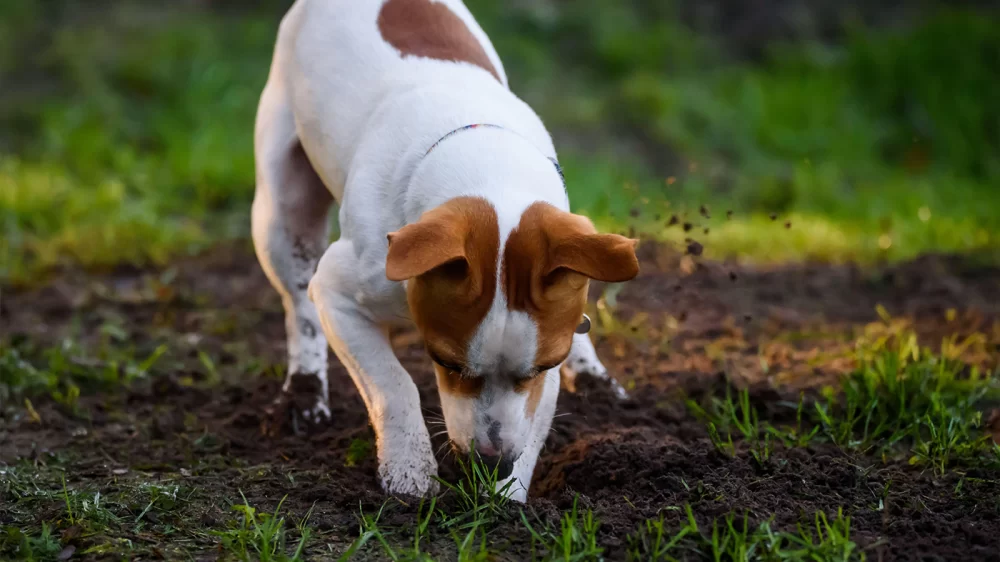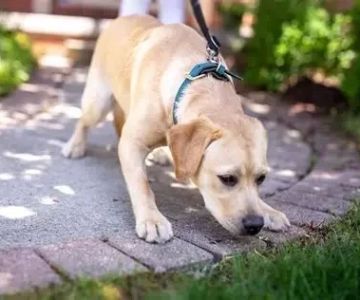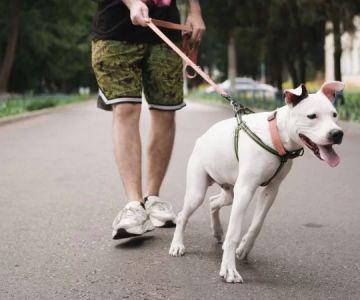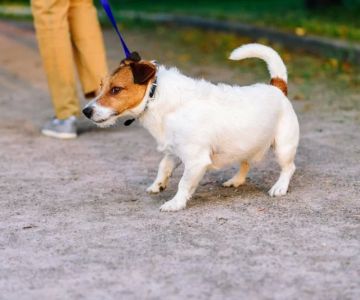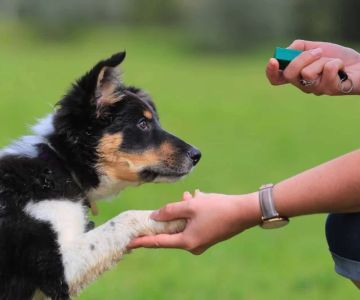How to Train a Dog to Stop Digging in the Garden
If you’ve ever walked out to your garden only to find your dog has turned it into a digging zone, you know how frustrating it can be. As a dog owner myself, I’ve faced this challenge firsthand. But after some trial and error, I’ve discovered several techniques to train a dog to stop digging in the garden, and in this article, I’m going to share them with you. Whether you have a playful pup or a senior dog, these methods can help you curb unwanted digging behavior and restore peace to your garden.
Understanding Why Dogs Dig
Before diving into solutions, it's important to understand why dogs dig in the first place. Digging is a natural canine behavior, and there are many reasons a dog might dig in your garden. Some dogs dig to bury items like bones or toys, while others dig to cool down on hot days or create a comfortable resting place. For some dogs, digging is a sign of boredom or anxiety. My own dog, Buddy, used to dig frantically in the garden whenever he was left alone, and after some observation, I realized it was due to anxiety and lack of mental stimulation.
Digging can also be a response to things like seeking attention, hunting small creatures, or exploring their environment. The more you understand your dog’s specific reasons for digging, the better equipped you’ll be to address the behavior. Keep in mind that dogs with higher energy levels, like terriers or hounds, may be more prone to digging due to their instinctual hunting or burrowing tendencies.

8841 W Garden Grove Blvd, Garden Grove, CA 92844, USA
See Details1. Providing Sufficient Physical and Mental Stimulation
One of the primary reasons dogs dig is boredom. If your dog isn’t getting enough physical exercise or mental stimulation, they might turn to digging as a way to entertain themselves. When I noticed Buddy digging up our garden bed, I realized he wasn’t getting enough exercise. A tired dog is a happy dog, so the first step in stopping the digging was to ensure Buddy was getting plenty of exercise each day.
Taking Buddy for regular walks, providing him with interactive toys, and even engaging in playtime in the yard helped him burn off excess energy. In addition to physical exercise, mental stimulation is just as important. Puzzle toys, training sessions, and scent games can keep your dog’s mind active and reduce the need to dig out of boredom. I started incorporating more mentally stimulating activities into Buddy’s daily routine, and soon enough, the digging behavior began to subside.
2. Creating a Designated Digging Area
If your dog enjoys digging, why not give them a designated spot to dig? This technique worked wonders for Buddy. I created a special digging zone in a part of the yard where it was okay for him to dig freely without damaging the garden. By encouraging Buddy to dig in this area and rewarding him with treats when he did, he began to associate digging with the designated spot rather than all over the garden.
You can create a digging pit by filling an area with loose dirt or sand and burying toys or treats inside. Whenever your dog starts digging in the garden, gently redirect them to the digging area. With time and patience, your dog will start to prefer the designated spot, and your garden will be safe from their digging paws.
3. Training and Redirecting Behavior
Training is a crucial aspect of teaching your dog not to dig in the garden. When Buddy first started digging, I used positive reinforcement to reward him when he stopped the digging behavior and followed my commands. It’s essential to redirect your dog’s attention immediately when they start digging in the garden.
If you catch your dog in the act of digging, calmly but firmly say “no” or “stop” and redirect them to a more appropriate activity. I found that using a firm voice without yelling helped Buddy understand that digging wasn’t allowed. After redirecting, praise and reward him with a treat when he stops the digging behavior and starts doing something else, like playing with a toy or lying down in a designated area. Consistency is key—every time your dog digs, be sure to redirect them to the right behavior and reward them for it.
4. Managing the Environment
Sometimes the key to stopping your dog from digging is to make the garden less inviting. I noticed that Buddy tended to dig in spots where the soil was loose or there were scents of small animals. To address this, I took a few steps to make the garden less interesting to him.
First, I added some mulch and stones to areas where Buddy liked to dig, which made it more difficult for him to dig up the soil. I also applied a safe, pet-friendly deterrent spray to areas that were particularly prone to digging. These sprays, often made from citrus or vinegar, have an unpleasant scent that discourages dogs from digging. Just make sure to choose a product that is safe for both your dog and your plants.
5. Addressing Anxiety and Stress
As I mentioned earlier, anxiety can be a major cause of digging. If your dog is digging out of stress or fear, it’s essential to address the root cause of the anxiety. Buddy’s digging became more frequent whenever I left him alone in the yard, so I started implementing changes to ease his anxiety. I began leaving calming music on for him and provided a cozy, safe space in the yard where he could feel secure.
In some cases, dogs dig because they’re trying to escape from something that scares them, such as loud noises or other animals. If you suspect your dog’s digging is anxiety-related, try to identify the triggers and address them with behavior modification, calming aids like pheromone diffusers, or even by consulting with a professional dog trainer or behaviorist.
6. Avoiding Punishment
While it may be tempting to punish your dog for digging, this approach is not effective and can actually cause more harm than good. Punishing your dog after they’ve dug can create fear and confusion, and it may even lead to more destructive behaviors. Instead, focus on positive reinforcement, redirection, and providing an appropriate outlet for your dog’s natural digging instincts. Patience, consistency, and understanding will go much further in changing your dog’s behavior.
7. Seeking Professional Help
If you’ve tried these strategies and your dog’s digging persists, it may be time to consult a professional dog trainer or behaviorist. A professional can assess the situation and provide personalized advice based on your dog’s specific needs. They may use advanced training techniques, such as clicker training or counter-conditioning, to help your dog learn better coping mechanisms and curb the digging behavior.
While dealing with a dog that digs can be frustrating, with the right training and patience, it is possible to stop this behavior. I’ve seen great results with Buddy, and I’m confident that with the right approach, you can help your dog learn to enjoy your garden without tearing it apart.

